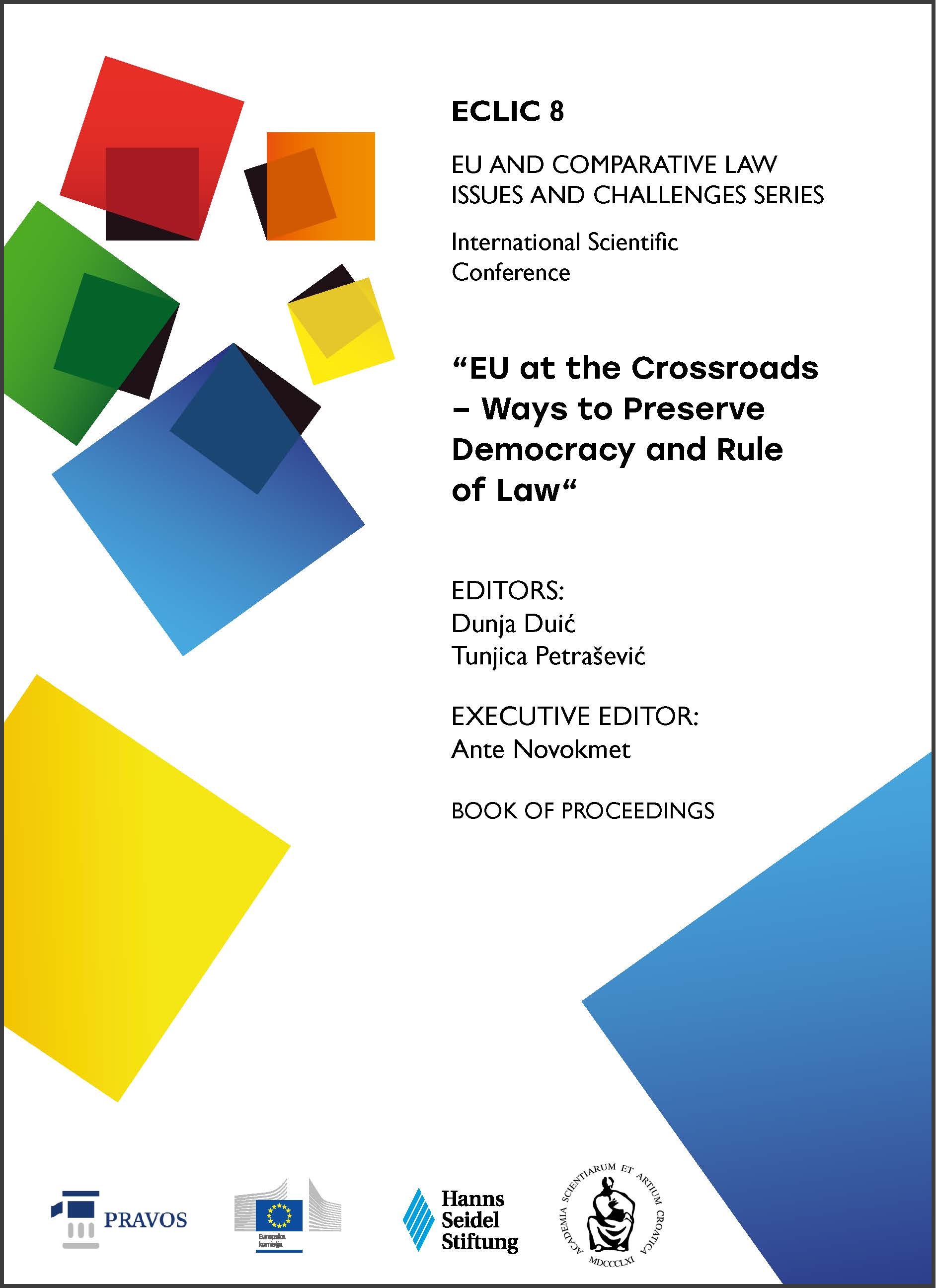THE GROWING ROLE OF SOCIAL CONTEXT AS A CRITERION OF JUDICIAL INDEPENDENCE
DOI:
https://doi.org/10.25234/eclic/32306Abstract
Judicial independence is immanently connected with the rule of law and as such is regularly scrutinized by multiple international organizations. Bodies such as the Council of Europe and the Venice Commission have issued numerous “soft law” instruments establishing guidelines for judicial independence standards. Meanwhile, the European judiciary system, on its part, has analyzed and ruled on specific issues on a case by case basis.
The judiciary reforms introduced in Poland within the past decade have sparked immense discussions as to whether they remain in line with the EU rule of law, in particular whether the judicial independence standard has been upheld or jeopardized. As a result, an ideal environment has been created for the European Court of Justice to shape the EU standards, as the number of recent rulings on the matter of judicial independence has grown rapidly. While the European Court of Justice is key in establishing common standards across the EU, the Court seemingly avoids creating general, common standard of judicial independence.
Recently, while assessing the judicial independence the European Court of Justice has focused on aspects such as social perception and impressions of individuals involved in the proceedings, thus stressing the importance of the “context”, rather than working towards establishing a clear European standard for the assessment of the independence (or lack thereof) of judges. With such ambiguous rules, however, it cannot be excluded that an objectively independent court could fail the test due to e.g. a widespread misinformation campaign, while a judiciary subjected to numerous minor reforms kept under the radar of the public eye, which effectively undermine its independence, could avoid the ECJ’s scrutiny. As the concerns regarding the future of the rule of law in the European Union spread, the need for a clear and objective roadmap becomes more evident.
In this context, this article aims at analyzing a sample of three recent ECJ cases: Land Hessen (Case C-272/19), W. B. et al. (Joined Cases C 748/19 to C 754/19) and Asociaţia "Forumul Judecătorilor din România" (Case C-216/21) in order to assess whether such roadmap has been created – or whether steps towards its creation have been taken by the European institutions.
Downloads
Published
How to Cite
Issue
Section
License
Copyright (c) 2024 Magdalena Hilt

This work is licensed under a Creative Commons Attribution-NonCommercial 4.0 International License.
Authors retain the copyright on the papers published in the Journal, but grant the right of first publication to the Journal. Papers accepted for publication or already published in ECLIC of the Faculty of Law in Osijek may be published by the author(s) in other publications only with proper notice of its previous publication in ECLIC.


